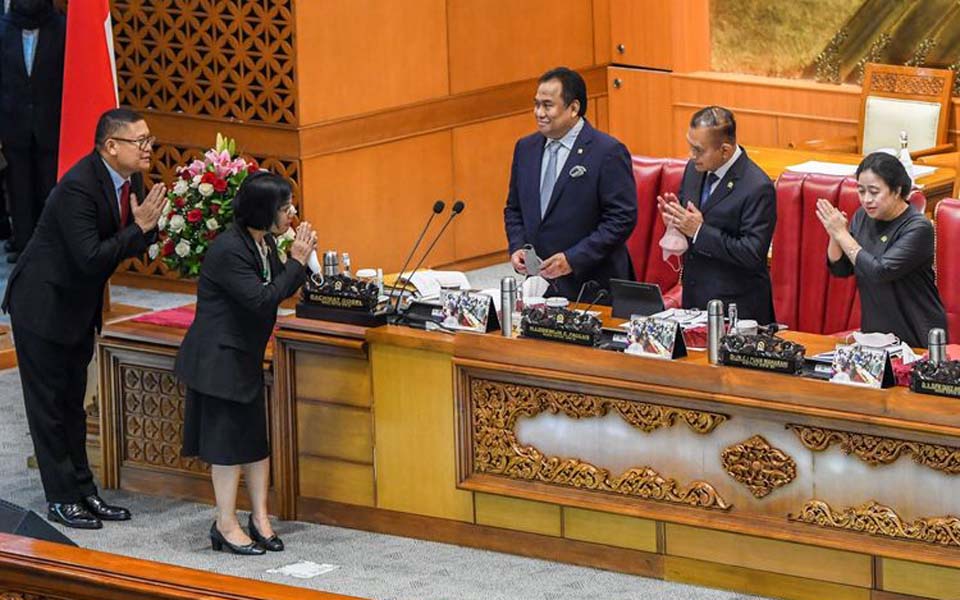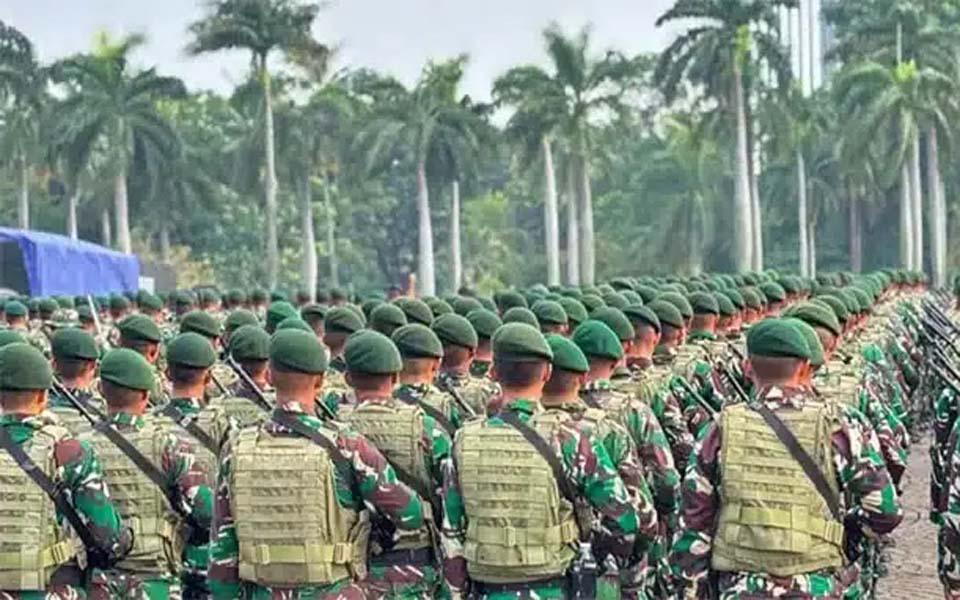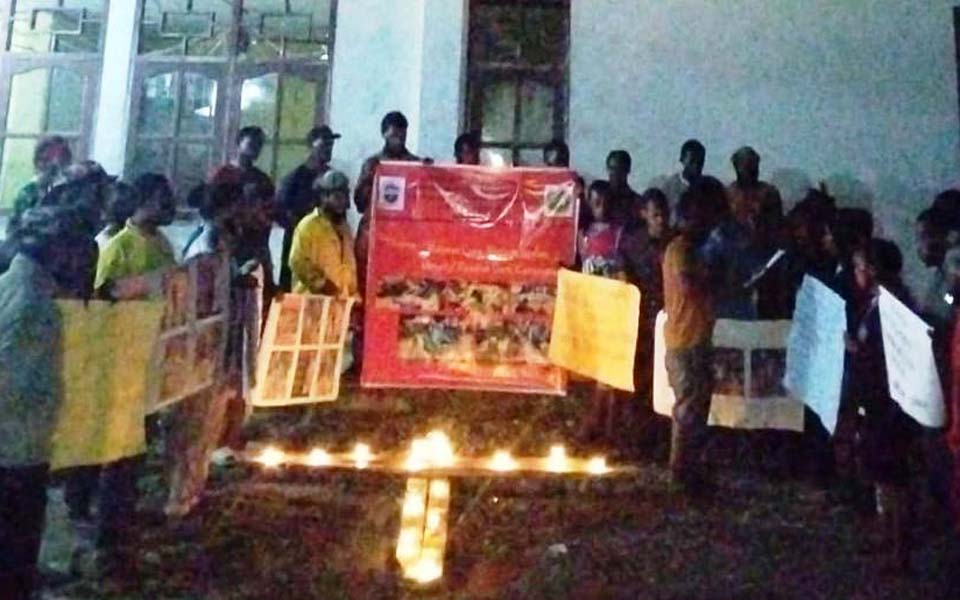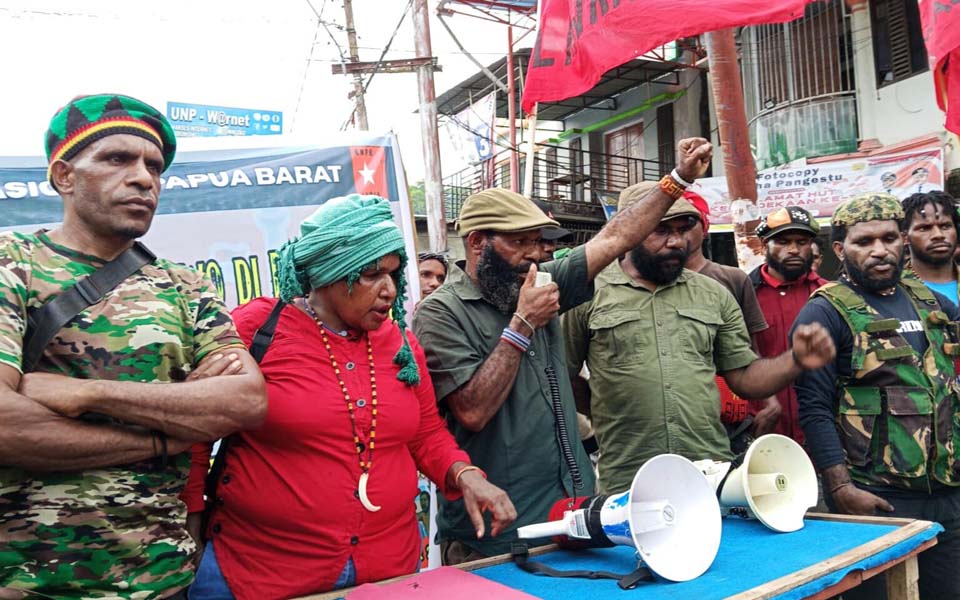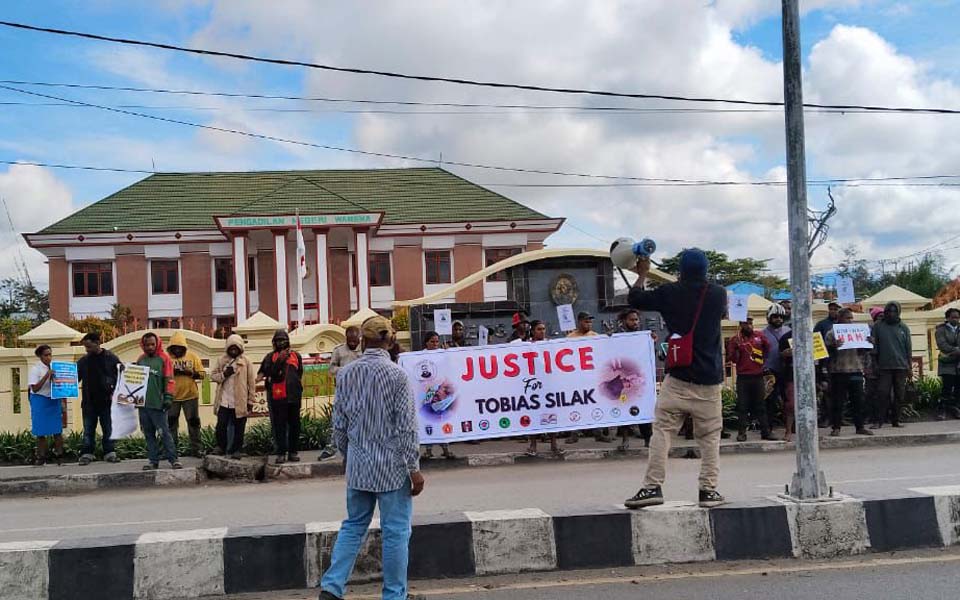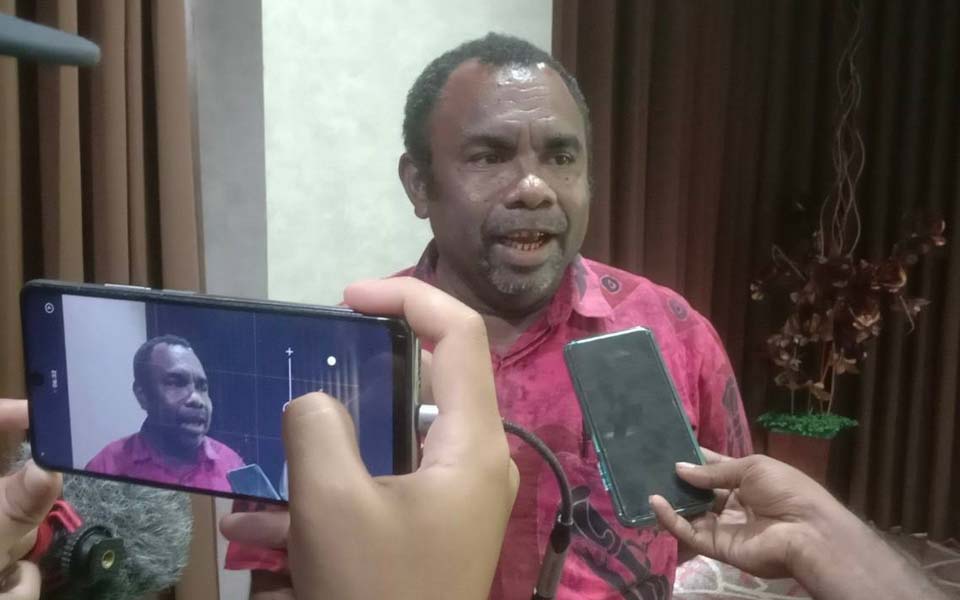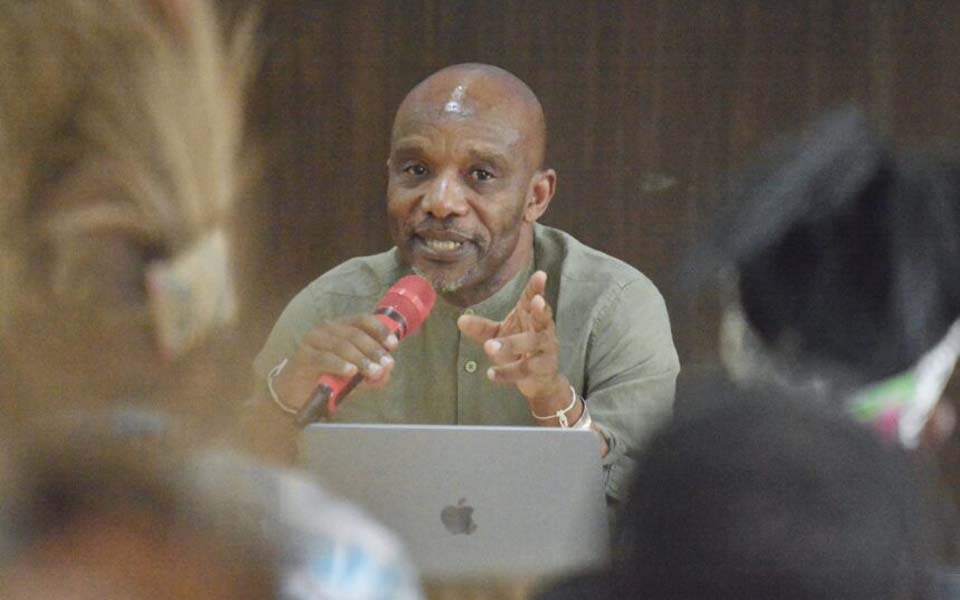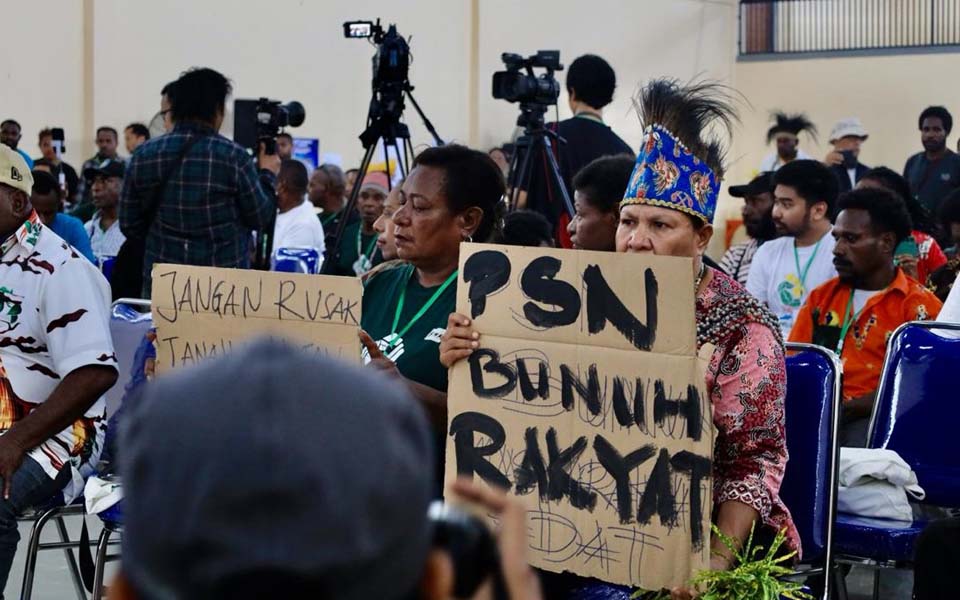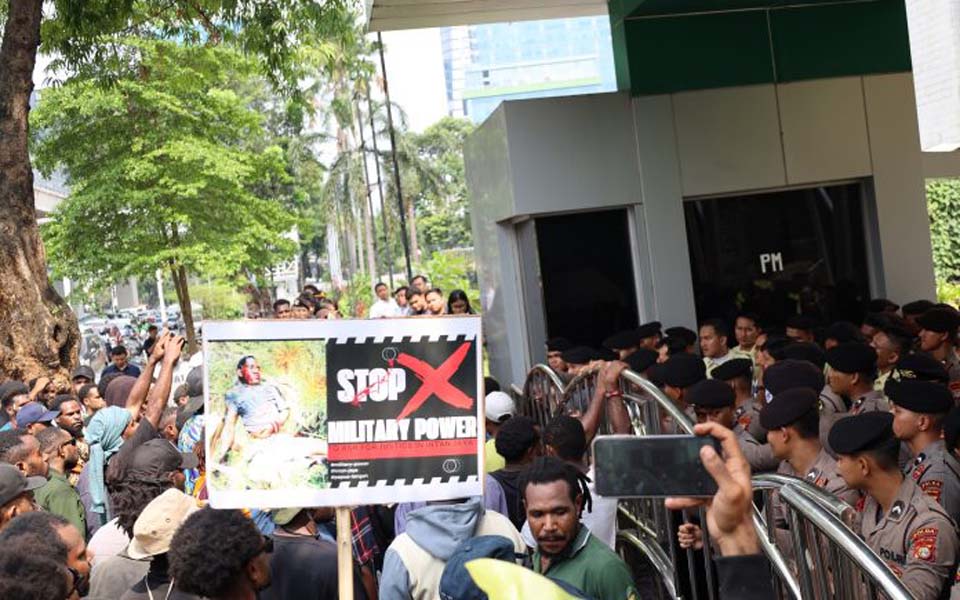Vitorio Mantalean, Jakarta -– The Indonesian House of Representatives (DPR) enacted three draft laws on the creation of three new provinces in Papua at a plenary meeting on Thursday June 30, namely, South Papua, Central Papua and the Papua Highlands.
If counted backwards, the process was completed in lightening fast time. It only took the House two-and-a-half months to create the three new provinces – counting from when the three draft laws were endorsed as a DPR initiative on April 12, 2022.
Right from the start, the creation of the new provinces has been criticised by those concerned with Papua affairs and human rights activists due to several basic problems.
Tinkering with Otsus, re-centralisation of power
Yesterday's creation of the new provinces would not have been possible if the DPR had not first revised the Papua Special Autonomy (Otsus) law which expired at the end of 2021.
Without involving the Papua People's Council (MRP) – the state institution tasked with representing the cultural interest of indigenous Papuans (OAP) – the DPR and the government conducted an evaluation of Otsus and arrived at the conclusion that it needed to be extended.
The DPR revised the Otsus Law through Law Number 2/2021 and gave Jakarta an additional power over Papua – the creation of new regions. Prior to this, the creation of new regions in Papua could only be done with the agreement of the MRP and the Papuan Regional House of Representatives (DPRD).
This policy was seen as abolishing Papua's status as a special autonomous region, which characterised the spirit of decentralisation of power from the central government to the regions.
"This proved that our government is moving towards an order which is undemocratic, where there's no decentralisation. There's been a recentralization or re-concentration of power from the regions to the center", said Amnesty International Indonesia Executive Director Usman Hamid during a press conference yesterday.
Court still reviewing Otsus law revision
The revisions to the Otsus Law, which were seen as revoking the spirit of Papuan special autonomy, resulted in the MRP submitting a judicial review of the law last year with the Constitutional Court (MK).
Registered as Case Number 47/PUU-XIX/2021, several articles are being tested by the court including, among others, Article 6 Paragraph (2), Article 6A, Article 28, Article 38, Article 59 Paragraph (3), Article 68A, as well as Articles 76 and 77 on the creation of new autonomous regions.
The hearings are already approaching the final stage with each party in the case having already submitting their concluding documents with the court. All that remains is a ruling by the Constitutional justices.
The DPR and the government therefore were seen as being unethical because they accelerated the deliberations on the creation of new Papuan provinces despite the law still being reviewed by the Constitutional Court.
"Where is the common sense? I hope that the executive and the legislative will reconsider, wait for legal certainty, only after the legal process [is complete] implement (the creation of new Papuan regions)", MRP Chairperson Timotius Murib said to Kompas.com on Tuesday May 24.
Elite symbiosis
The creation of new regions in Papua points to a symbiosis of interests between the national and local political elite.
At the national level, new Papua regions strengthen Jakarta's control because it will be accompanied by the deployment of additional troops – both from the police as well as the TNI (Indonesian military).
At the local level, the local political elite will get a red carpet towards new positions which will be created in the new provinces.
This mutual symbiosis between the two parties was reflected in a study conducted by Papua University anthropologist I Ngurah Suryawan in his 2015 dissertation titled The Elite Tactic of Grabbing Power in Manokwari Regency, West Papua.
Ngurah explains how the local elite pursued coordinated efforts and lobbying in Jakarta in order to smooth the way for the creation of new regions in Papua.
"This (creation of new regions) was an opportunity consciously created by the state, taken advantage of by the (local Papuan) elite. The state was truly conscious, that the (Papua) elite had to be given room, given 'toys', given a platform", Ngurah told Kompas.com on April 8.
This was apparent from what occurred at the municipal and regency level in Papua and West Papua provinces. The creation of new regions in fact became an arena for the local elite to grab positions in the bureaucracy, access budgets, projects and other slices of the cake.
Several regional heads such as former Maybrat Regent Bernard Sagrim and ex-South Sorong Regent Otto Ihalauw have already been indicted for corruption.
"I think that in the end we will see the formation of middle-class groups, local elites who are prosperous because of the creation of new regions. On the other hand, the ordinary people will never be prosperous because the circulation of power does indeed remain in their (the elites') hands", he said.
President Joko "Jokowi" Widodo even secretly invited a number of MRP members who support the creation of new provinces to the Bogor Presidential Palace on May 20, without submitting an official letter with the MRP. The meeting proceeded behind closed doors.
The welfare myth
The government and the DPR always equivocate that the mission to achieve even development or improving welfare is behind the creation of new regions in Papua.
"We have the same spirit which is to accelerate Papuan development and also to bring prosperity to the ordinary people, particularly indigenous Papuans", said Home Affairs Minister Tito Karnavian at the parliamentary complex in Jakarta yesterday.
The data and facts however speak otherwise.
A study by the government's National Development Planning Board (Bappenas) in 2001-2007 found that after five years new regions were no better off than the regions they were previously part of. It also found that the situation post-separation is not conducive for new areas to immediately get their economies moving.
The results of an evaluation and report by the Supreme Audit Agency (BPK) in 2019 also showed that in terms of sources of income, the majority of new autonomous regions in Papua between 1999 and 2014 were still dependent on the state budget (ABN) and were not yet able to be self-supporting.
It was this that made the government declare a moratorium on the creation of new regions in the first place.
"The proportion of their PAD (locally generated revenue) was still less than the funds transferred from the central [government]. This was one of the reasons for this", said Vice President Ma’ruf Amin on December 4, 2020, as quoted on the official vice presidential website wapres.go.id.
This includes West Papua province which was created in 1999. The average amount of transfers to the region and village funds (TKDD) from the central government over the last five years, according to data from the Ministry of Finance, amounted to 84.3 percent of the West Papua provincial budget (APBD).
According to data from the Ministry of Home Affairs, the PAD for West Papua and Papua province was only 6.15 percent and 11.96 percent respectively, lower than the national average in 2021. In Papua province, the figure was higher because of income from the giant PT Freeport gold and copper mine.
The myth of welfare becomes even more apparent if you look at the human development index (IPM) in Papua.
"In regencies or municipalities which are dominated by non-Papuan populations, the IPM is high, it can reach 70-73. However, in the regions dominated by [indigenous] Papuan communities, the IPM is still low", says Hamid.
Social conflict and rights violations
All of these crucial issues in the creation of new regions in Papua are expected to sharpen existing conflicts in the Land of the Cenderawasih as Papua is known. Moreover the decision to create new provinces was seen as not being based on an in-depth scientific study or considering the anthropological situation in Papua which is very heterogeneous.
Take for example, the creation of Central Papua Province with its provincial capital in Nabire, which is expected to trigger new social frictions.
Nabire, in terms of traditional communities, it is closer to the customary area of the Saireri. Meanwhile most of the Central Papua region, such as in Mimika, is the customary area of the Meepago.
"In Nabire itself there are several groups with different views which reject it becoming the provincial capital, they want to join with Saireri. These different views will give rise to conflicts", said human rights activists and Land of Papua Injil Christian Church (GKI) leader Dora Balubun yesterday.
She claims that the potential for such conflict was also reflected at the elite level which the DPR's Commission III visited Merauke and Jayapura late last week.
"There were several regents who were digging their heels in, such as the Nabire and Mimika regents, over who's regional capital should become the provincial capital", said Balubun.
On the other hand, there is also concern that the deployment of troops in large numbers through the regional police (Polda) and new regional military command (Kodam) in the new provinces will only worsen the human rights situation there.
The entry of security forces in large numbers is seen as going hand-in-hand with the needs of investment and business, as well as putting down the desire for Papuan independence.
"In 2021 there were around 11,000 Polda Papua personnel. So with the presence of three new provinces, this figure could increase by (roughly) three times", said Public Virtue Institute Executive Director Miya Irawati in a virtual discussion on April 14.
She also cited Central Statistics Agency (BPS) data related to the size of contributions from mining corporations in Papua to the regional gross domestic product (PDRB) in the region, namely 28.27 percent as of 2020.
"In who's interests are the additional Kodam or Polda (in the three new provinces), for Papua, for the country, or to protect companies [opearating] in Papua?", asked Irawati.
Even without new regions being created, Intan Jaya regency is often the centre of armed conflicts between the TNI and the West Papua National Liberation Army (TPNPB). According to Amnesty International data Intan Jaya experienced a jump in the number of military posts from two in 2019 to 17 in 2021 because of "security reasons".
"The latest Amnesty International report provides and explanation on how many extra-judicial killings are still happening in Papua, particularly in Intan Jaya. And not just killings but also violence, internally displaced people, and also other human rights violations", said Amnesty's Usman Hamid.
[Translated by James Balowski. The original title of the article was "3 Provinsi Baru di Papua Disahkan: Antara Mitos Kesejahteraan dan Kuasa Jakarta di Bumi Cenderawasih".]





